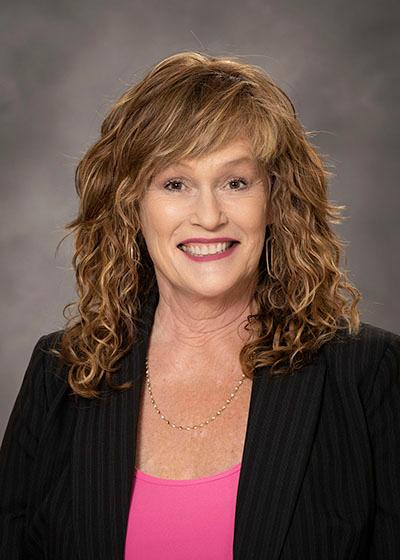The Ombuds provides a confidential, neutral, and independent resource for all ETSU faculty and staff. We are available to listen, help you explore issues of concern, facilitate informal resolution of conflict, clarify university policies and procedures, and identify the appropriate person or department within the university to respond to your questions. The Ombuds aligns with the standards and practices of the International Ombuds Association.
The Ombuds offers an alternative, informal, and safe place to explore any concerns or address any questions you might have as a faculty or staff member—and if we don’t know the answer, we will seek to find it for you. To learn more, please explore this web space or contact one of your Ombuds directly (see “Meet Your Ombuds” below).
The Ombuds will:
- listen to concerns and perspectives
- provide a safe and private place to confidentially discuss issues of concern
- help faculty and staff analyze situations, explore options, and answer questions for resolving concerns
- assist in identifying and interpreting university policies and procedures
- identify appropriate university resources and suggest referrals
- safeguard identity
- provide conflict resolution and other communication-related training for departments or other groups
- facilitate communication or mediate between individuals or groups
- remain impartial to all parties involved in a conflict
The Ombuds will NOT:
- advocate for an individual's personal position
- act without consent
- participate in any formal grievance or appeal
- provide legal advice
- overturn decisions made by university officials
- keep identifying records
- address a non-university problem or complaint
- make binding decisions
- mandate policies
- replace formal processes
Common issues and concerns that might be brought to the Ombuds include the following (note that this list is not comprehensive):
- conflict or struggles with colleagues
- interpersonal, intercultural, and group conflicts
- miscommunication between faculty, staff, and administrators
- concerns about complaints
- questions around policies and/or procedures
- navigating ethical dilemmas or concerns about ethical behavior
- concerns about unfair treatment or retaliation
- concerns regarding processes and salary equity
- workload issues
MEET YOUR OMBUDS

Dr. Allan Forsman
Allan Forsman is a professor in the Department of Health Sciences, which is housed in the College of Public Health. He earned his Ph.D. from the University of North Dakota School of Medicine in 1991. He joined ETSU in 1998. His main teaching focus is human anatomy, and his research focuses on the effects of spaceflight on reproductive systems as well as the effects of alcohol and/or high-fat diets on the urinary and reproductive systems.
During his tenure at ETSU, he has served on several committees, including the Faculty Senate, Tenure and Promotion Appeals Committee, and Committee for 125. He was awarded the College of Public Health Foundation Teaching Award in 2011, the ETSU Distinguished Faculty Award in Teaching in 2012, and the Southern Athletic Conference All-Conference Faculty Award in 2018.
Lamb Hall Room 246
423-439-4502
forsman@etsu.edu
ombuds@etsu.edu

Dr. Amber Kinser
Amber Kinser is a professor in the Department of Communication Studies and Storytelling, which is housed in the College of Arts and Sciences. She earned her Ph.D. in Communication from Purdue University and joined the ETSU faculty in 1997.
Her primary research interests include communication in health and aging, family communication, mother studies, and food studies.
During her tenure at ETSU, Dr. Kinser served for 10 years as director of Women’s Studies and for 13 years as department chair for the Department of Communication and Performance (formerly the Department of Communication).
She has earned several awards at ETSU, including the Distinguished Faculty Award in Service and the Patricia E. Robertson Diversity Leadership Award and being named a Notable Woman of ETSU in 2023. In 2015, her research earned her induction into the Museum of Motherhood Hall of Fame for “Practical and Political Inspiration in Motherhood Studies.”
In 2023, she earned professional certificates in Conflict Resolution from Cornell University and Mediation & Arbitration from University of Tennessee. She is a Certified Professional Coach and holds an ACC credential from the International Coaching Federation. In addition, she is a member of the International Ombuds Association and the International Coaching Federation.
Sherrod Library, 355
423-439-7577
kinsera@etsu.edu
ombuds@etsu.edu
-
Who can access the help of the Ombuds?
Services are available to all faculty and staff who are part of an ETSU campus. -
Does the Ombuds assist staff?
Yes, staff should contact either of the Ombuds for assistance. -
Does the Ombuds assist students?
No. Undergraduate students should contact the Dean of Students Office (deanofstudents@etsu.edu), and graduate students should contact the Graduate School (gradschool@etsu.edu).
-
When should a faculty or staff contact the Ombuds?
A faculty or staff member should contact the Ombuds when they:
- need to have a confidential discussion about a university-related problem
- need help in facilitating a resolution to a work-related problem
- want to know options for solving a work-related problem
- need help communicating with other faculty, staff, or university administrators
- feel a policy or procedure has been unfairly applied
- need information about rights and university policies and procedures
- prefer to resolve a dispute in an informal manner
- want to know university resources available
-
Is the Ombuds part of administration?
No. The Ombuds is a member of faculty at ETSU. They are free from any administrative influence in addressing problems, resolving conflicts, or breaching confidentiality. A person may consult with an Ombuds without making a formal complaint. -
Does the Ombuds keep records?
No. The Ombuds may take notes to understand a situation. These notes are shredded after the consultation is complete. These notes are not subject to open records requests. The Ombuds keeps statistical data for reports but does not keep names of contacts in any sort of database. -
Are faculty or staff required to use the Ombuds?
No. The use of the Ombuds is strictly voluntary. -
How can I reach the Ombuds?
The Ombuds may be contacted personally via e-mail or by phone to make an appointment. See Meet Your Ombuds for contact information. -
Where do we meet with the Ombuds?
You may elect to meet the Ombuds in their office or at a location of your choosing. The location of your meeting should be mutually arranged.
 South Dossett Drive - Closure...
South Dossett Drive - Closure...